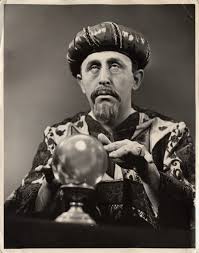 This is probably going to make me sound ancient, but I remember doing my radio station budget with a calculator, a #2 pencil and a Big Pink eraser. I wasn’t alone; everyone did their budgets this way once upon a time.
This is probably going to make me sound ancient, but I remember doing my radio station budget with a calculator, a #2 pencil and a Big Pink eraser. I wasn’t alone; everyone did their budgets this way once upon a time.
In those early days of computers entering the radio station, the first department I remember computerizing was the traffic department. Oh, I so remember our doing that transition.
We were going into our first holiday weekend, that time when traffic needs to prepare five traffic logs for each radio station to get through a three-day weekend. What was supposed to make us fast and efficient saw us spending time going into Saturday to get the logs done. I remember the look on my traffic director’s face. It was one of those “are you going to make me do this again” kinds of looks. (I did)
Computers weren’t really all that fast in those early days, but the promise was clearly there that this would be a better way over time.
Seeing budget time coming up, I said to my business manager, let’s take a course at the local community college in Excel and do our budget this year on a computer. She loved the idea and the two of us went back to school to learn how to use Excel spreadsheets.
We cranked out our first budget and it was amazing. It was clean, easily read and best of all it showed that we were going to have a great year for the company.
Everything was great, until my boss, one of the two owners of the group showed up to review my budget. He was NOT impressed that we had computerized the process. He basically said I don’t care how it looks or what it says, but is it right. He then proceeded to take a calculator out of his pocket and crunch the numbers. Very quickly he found all kinds of errors.
Color me embarrassed.
The bad news was we hadn’t mastered the Excel spreadsheet in our first attempt doing our station budget on this computer program. The good news was we were able to fix all the problems and hand my boss a revised budget for him to take back on the plane to the home office.
The following year, the home office announced that all radio stations in the group were to do their station budget on Excel.
Spreadsheet programs, as it turns out, can allow us to manage a lot of numbers and monitor what’s going on in our businesses. They are invaluable, but not omniscient.
Results can’t be engineered. Just simply knowing the inputs doesn’t allow one to always accurately predict the outputs.
It was Benoit Mandelbrot who first said that economic analysts were too dependent on “Joseph effects” which means things happen in a continuous and predictable model and turning a blind eye to “Noah effects” which creates chaos and completely destroys those same models.
Another way of saying it is that when something doesn’t fit your nice little model, just ignore it. That’s never been a solid plan. It’s why people don’t often see stock market crashes coming or innovations like the iPhone, the Internet and WiFi, but these things always happen and when they do they steer the course of history.
Remember the financial crisis of 2008? Mandelbrot understood how things like this happened. (Noah effects)
In the world of radio today, we have BEATS 1, Pandora, Spotify and others. Over-the-air broadcasters did not see these “Noah effects” on their data driven and ROI focused spreadsheets. They were living in “Joseph world.”
In his new book “Team of Teams” General Stanley McChrystal tells the story of when he took over Special Forces in Iraq. Specials Forces was winning every battle but America was losing the war. McChrystal learned that the problem wasn’t that his teams weren’t doing their jobs right but that they weren’t doing the right jobs.
McChrystal says “In complex environments, resilience often spells success, while even the most brilliantly engineered fixed solutions are often insufficient or counterproductive.” For many radio companies the problem isn’t that they’re not performing to plan, but that the plan itself is flawed. It often is based on assumptions that don’t hold true in every radio market the company operates in.
The answer to this problem is to hire great leaders and let them lead.
 I’m not going to get into the weeds about the presidential election. But I do want to weigh in about marketing and promotion.
I’m not going to get into the weeds about the presidential election. But I do want to weigh in about marketing and promotion. This simple white on blue bumper sticker was seen on virtually every car at the Jersey Shore when I moved to Atlantic City in 1984.
This simple white on blue bumper sticker was seen on virtually every car at the Jersey Shore when I moved to Atlantic City in 1984.
 Everyone wants to know what the future for them will be. It’s why fortune tellers with crystal balls and astrology forecasts have been so popular.
Everyone wants to know what the future for them will be. It’s why fortune tellers with crystal balls and astrology forecasts have been so popular.